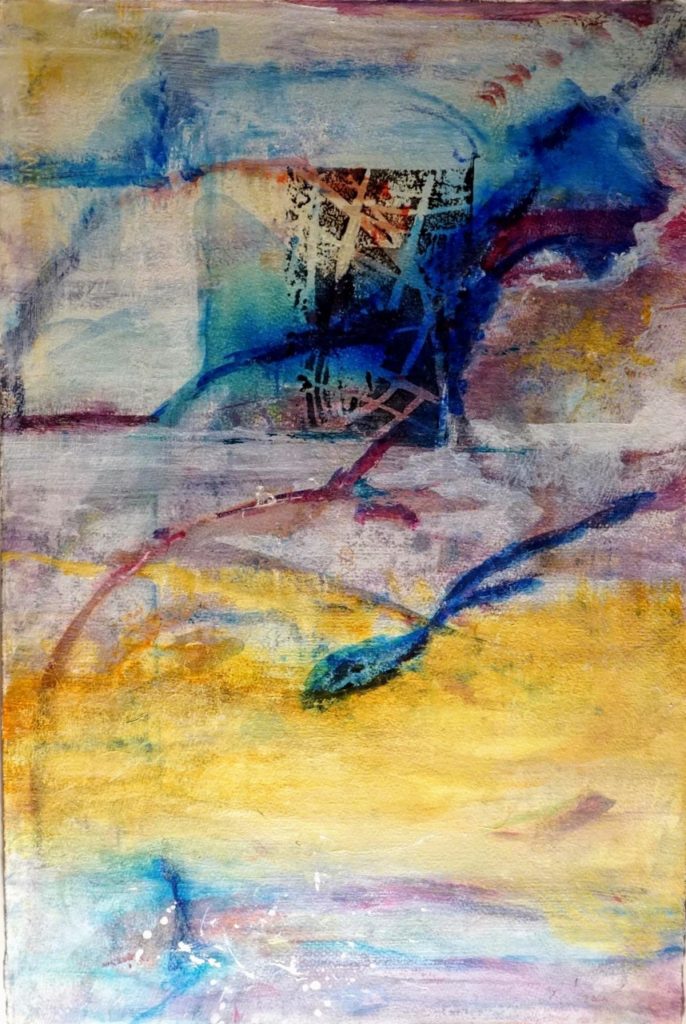
Featured Art: “NOVA”
Mixed media on paper, 20 x 16 inches
Rosemary Laurent
Let’s face it – most of us worry too much.
Worries can be like a stream: they may continually flow, almost without notice, or they can be like waves continually crashing down on the shore. We can try to ignore them, until they demand attention, robbing us of the present moment and sometimes robbing us of sleep.
I was recently listening to a meditation by Jon Kabat-Zinn, the founder of a world-famous program called MBSR or Mindfulness Based Stress Reduction. He said something so profound about worries – he suggested we welcome them. As crazy as this seems, the action of putting out a “Welcome Mat for Worries” is a great addition to your Spiritual Toolbox.
This makes sense on several levels: ignoring worries doesn’t them doesn’t make them go away, and focusing on them never helps. Welcoming them as just another part of present experience actually does something else: it takes away their power. Worries are like a bully of the mind – the more attention you give them, the more they continue driving you crazy. When it comes to worries, you can lie awake at night obsessing about your relationship, your finances, your boss or the family pet, but being sleep-deprived will only make everything seem worse. On the other hand, if you let your worries pass through your consciousness, acknowledge them, and, dare I say embrace them as a brief moment in time, “Voila!” They’ve lost their power. When you fully put out a “Welcome Mat for Worries” you might even find a reason to say, “thank you” to them for illuminating some part of your psyche that has been living in the shadows.
To listen to the Jon Kabat-Zinn meditation that inspired this writing, visit my YouTube Channel. Or, choose from any of the other meditations I have gathered there, and begin your meditation practice today.
Yours in Welcoming our Worries,

1. Jon Kabat-Zinn is the creator of the Stress Reduction Clinic and the Center for Mindfulness in Medicine, Health Care, and Society at the University of Massachusetts Medical School. His program supports people in coping with stress, anxiety, pain and illness, and is offered by medical centers and hospitals worldwide.

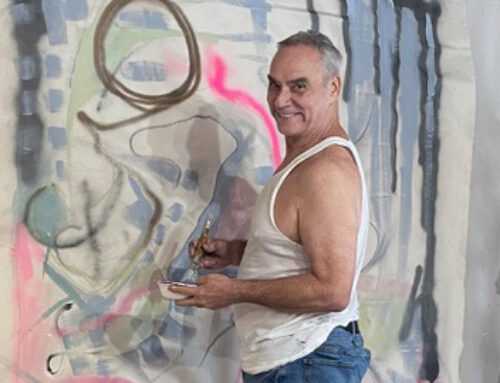
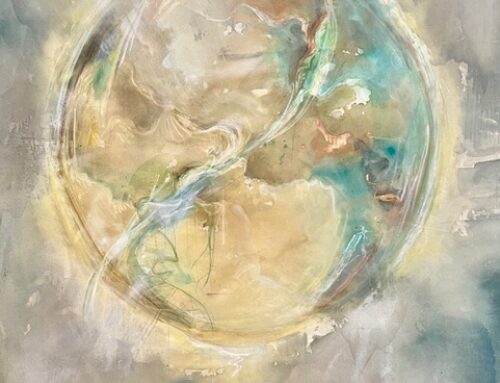
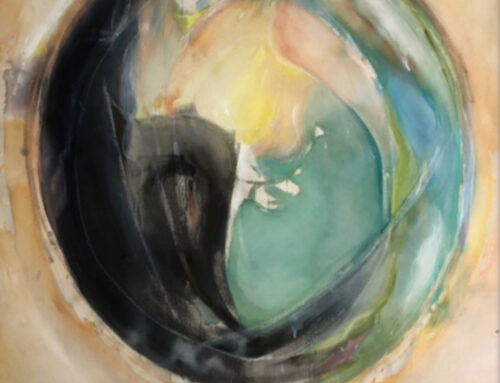
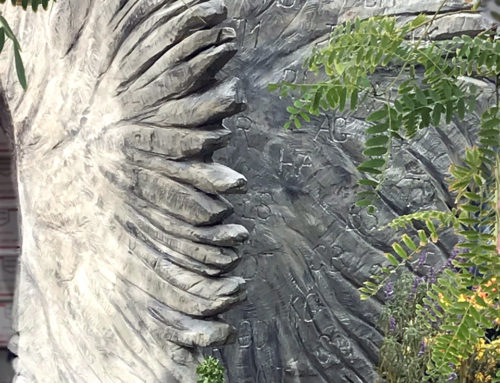
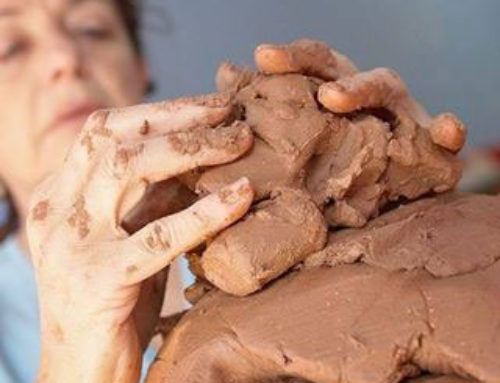
Leave A Comment